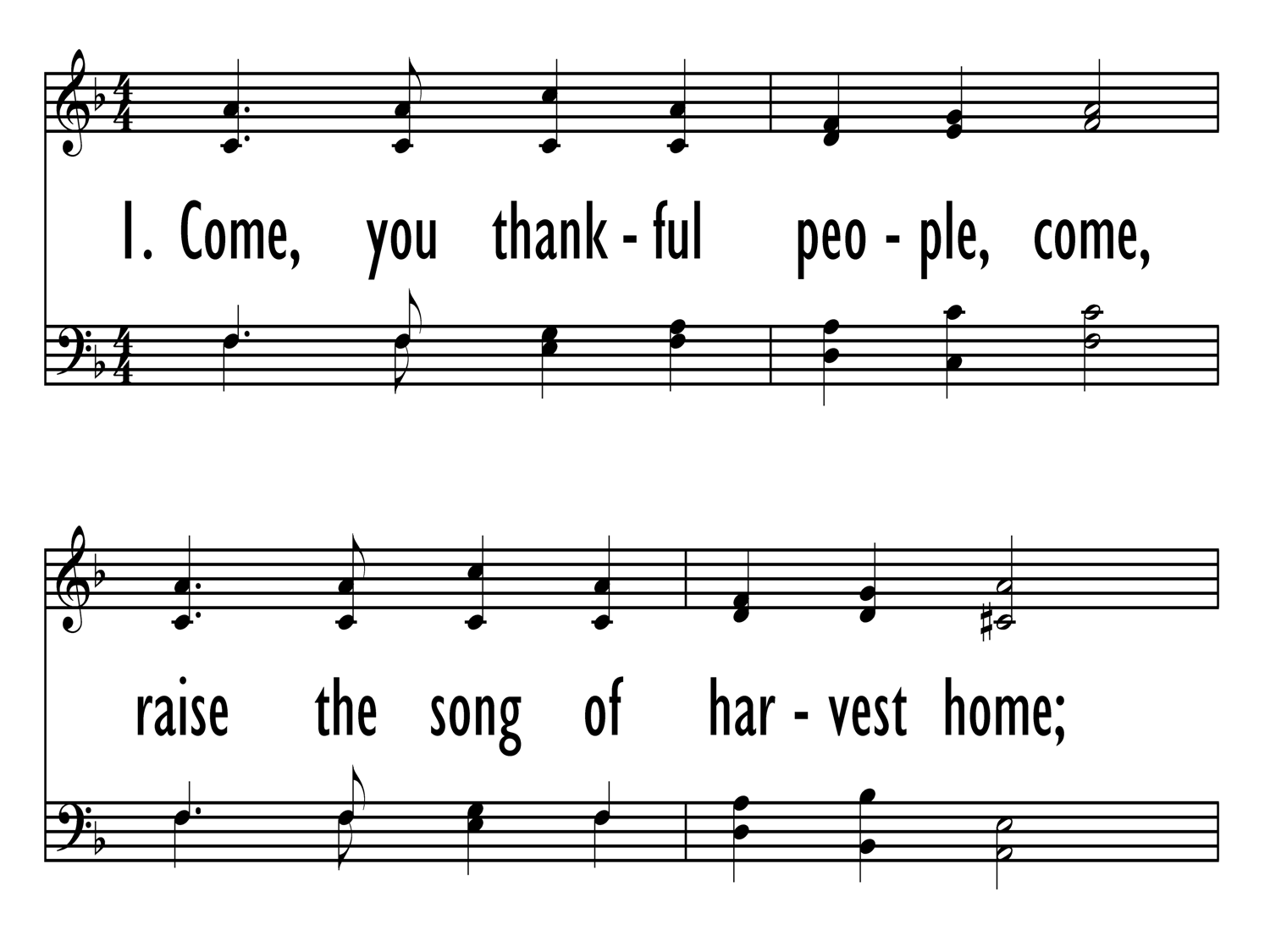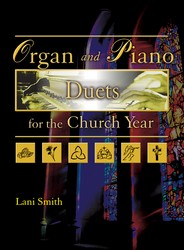- |
User Links
Come, You Thankful People, Come
Hymn Information
- First Line
- Come, you thankful people, come
- Author
- Henry Alford (1844, alt.)
- Tune Name
- ST. GEORGE’S WINDSOR
- Composer
- George J. Elvey (1858)
- Topic
- Jesus Christ: Second Coming · Occasional Services: Thanksgiving/Harvest
Copyright Information
- Text Copyright
- Public Domain
- Tune Copyright
- Public Domain
- Reprint/Projection Information
- Words and Music: The Words and Music are in the Public Domain; you do not need permission to project or reprint the Words and Music.
Full Text
Scripture References
Further Reflections on Scripture References
Written for village harvest festivals in England, the text uses imagery found in two gospel parables: the growing seed (Mark 4:26-29) and the wheat and the weeds (Matt. 13:24-30, 36-43). However, the initial agricultural harvest theme becomes an eschatological metaphor for the final judgment when the angels will gather God's chosen people into the "glorious harvest home" and cast the evil "weeds" into the "fire." Thus the text provocatively combines language and imagery that represent annual harvests as well as the ultimate consummation of history.
Psalter Hymnal Handbook
Confessions and Statements of Faith References
Further Reflections on Confessions and Statements of Faith References
Heidelberg Catechism, Lord’s Day 19, Question and Answer 52 professes that “in all distress and persecution, with uplifted head, I confidently await the very judge who has already offered himself to the judgment of God in my place and removed the whole curse from me. Christ will cast all his enemies and mine into everlasting condemnation, but will take me and all his chosen ones to himself into the joy and glory of heaven.”
Our World Belongs to God, paragraph 57 describes what believers can expect to experience: “…We will see our Savior face to face…he will set all things right…we face that day without fear for the Judge is our Savior whose shed blood declares us righteous. We live confidently, anticipating his coming...”
Come, You Thankful People, Come
Additional Prayers
Come, You Thankful People, Come
Tune Information
- Name
- ST. GEORGE’S WINDSOR
- Key
- F Major
- Meter
- 7.7.7.7 D


 My Starred Hymns
My Starred Hymns





